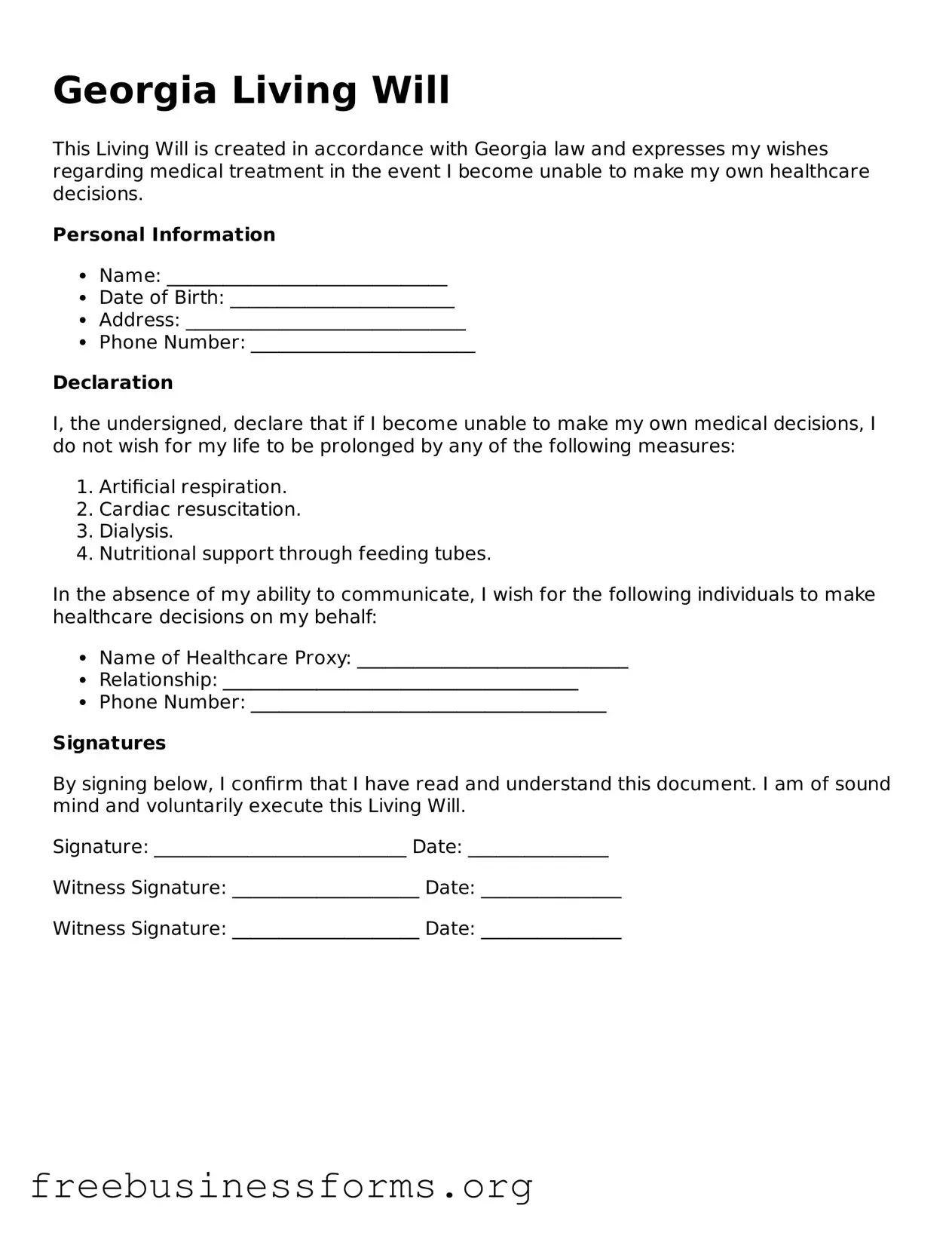Blank Living Will Template for Georgia
A Georgia Living Will form is a legal document that outlines an individual's preferences regarding medical treatment in the event they become unable to communicate their wishes. This form ensures that your healthcare choices are respected, providing guidance to family members and medical professionals. Understanding its importance can help you make informed decisions about your future care.
Open Form Here

Blank Living Will Template for Georgia
Open Form Here

Open Form Here
or
↓ PDF File
Quickly complete this form online
Complete your Living Will online quickly — edit, save, download.